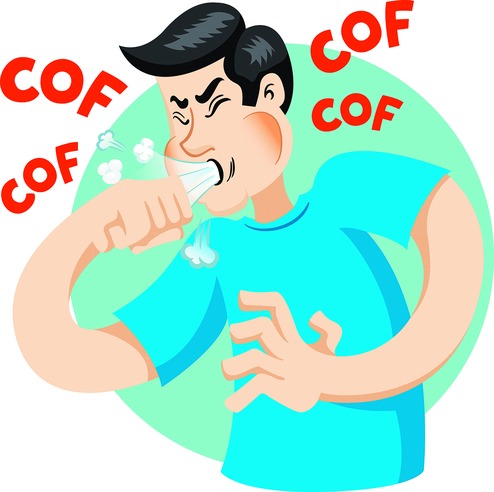
A hacking, persistent cough is worrisome, especially if accompanied by fever. Is it an allergy? Flu? Pneumonia?
Of the three, pneumonia is a cause for concern because it can be fatal if not diagnosed in time. Untreated or inadequately treated pneumonia accounts for 16 per cent of deaths in children below five in India and can be deadly in 50 per cent of infected adults. It is dangerous in children under two and adults over 65.
"Pneumonia" is a generic term for lung infection in which the attacking organism (virus, bacteria or fungus) gains a foothold in the warm, moist environment of the lungs. They then multiply, destroying the cells of the lung. The body does not remain quiescent. The cilia (fine hair) lining the lungs try to push out the offending organism. The cells secrete mucous (phlegm) in which the organism gets trapped. Coughing tries to expel the organism and the mucous.
Influenza, viral infections, smoking or exposure to second hand cigarette smoke, diseases such as diabetes, or low immunity (the result of steroids, cancer or HIV infection) can make the person more susceptible.
The mouth always contains bacteria. Their population and diversity increases if there are caries in the teeth, tartar build up or swollen and infected gums. The stomach contains partially digested food, which can regurgitate into the lungs, especially if the muscular sphincters are lax, as in obese people or if you lie down soon after eating. Surgery, anaesthesia, a semi-conscious state, a stroke or vomiting can also cause this. This results in "aspiration pneumonia" - an infection with a mixed bouquet of virulent organisms, which is difficult to treat.
Influenza can cause a viral pneumonia. This is seasonal and is often associated with conjunctivitis or diarrhoea. Initially it is very difficult to distinguish between a viral pneumonia, which does not require or respond to antibiotics, and a bacterial infection. Many viral pneumonias can eventually progress to bacterial infections.
Tobacco contains nicotine, which paralyses the protective cilia, making them ineffective. This is why smokers frequently develop pneumonia.
Pneumonia produces high fever, shivering and a hacking cough. There may be chest pain. The symptoms are more severe than in bronchitis. In older people, the symptoms may be misleading, with low grade fever, confusion, disorientation and loss of balance. In young children there may be lethargy, loss of appetite, and rapid or irregular breathing. The diagnosis is confirmed with blood counts, chest X-ray, sputum stains and culture.
Pneumonia can be treated at home with rest, good hydration, analgesics, cough expectorants and antibiotics. The illness may last for two weeks and recovery may be slow.
Hospitalisation is required in patients above the age of 65 or under the age of 2 months, or if there is blue discolouration of the lips and nails, or the pulse rate and blood pressure drop.
Reduce your chances of pneumonia with:
• Immunisation against pneumococcal bacteria and H. Influenzae
• An annual flu vaccine
• Not self-medicating with antibiotics
• Good dental hygiene.
Finally, try to quit smoking today.
Dr Mathai is a paediatrician and author of Staying Healthy in Modern India . Mail your questions to yourhealthgm@yahoo.co.in










